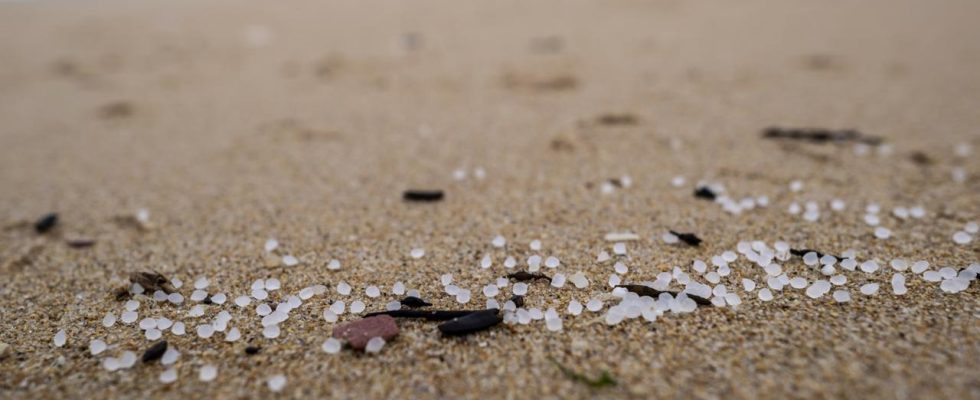Massive amounts of small plastic beads are currently washing up on the Spanish northwest coast – two regions have now declared an environmental emergency. The beads come from containers that were lost by a ship in December.
The authorities in northwestern Spain have declared alert level two in their environmental emergency plans because of countless plastic particles on Atlantic beaches. This allows the regions of Galicia and Asturias to ask the central government for help in cleaning up the beaches, as the newspaper “La Voz de Galicia” reported.
The evening before, the public prosecutor’s office said it was investigating because the beads could contain toxins, which could potentially cause environmental damage. There are also indications that the particles traveled as far as France.
Volunteers laboriously try to clean the beaches of plastic beads by hand.
Ship had lost containers
The white balls, which are almost the size of a lens – so-called pellets – are used to make plastic parts. They found their way into the sea when several containers carrying, among other things, around 25 tons of the beads fell overboard in a storm in December. The pellets were packed in plastic bags that tore open in the sea. The current washed them onto the beaches of northern Spain.
The shipping company Maersk confirmed that the chartered ship “Toconao” lost six Maersk containers off the Spanish coast on December 8th on the way to Rotterdam. The incident was immediately reported to the Spanish and Portuguese coast guards, a Maersk spokesman said. The ship owners have already commissioned specialist companies to help remove the pellets. Investigations into the cause of the container loss were ongoing.
Environmentalists warn
Numerous volunteers have been trying for days to clean the beaches by hand, laboriously using brooms, rakes, shovels and household sieves. Fishing is economically important for Asturias and Galicia.
Greenpeace and other environmental groups spoke of several million beads posing a danger to humans and marine animals. “These little plastic balls are an environmental problem because fish mistake them for fish eggs and eat them, so they enter the food chain and end up on our plates,” said spokesman for the Spanish environmental group Ecologistas en Acción, Cristobal López.
Spanish Environment Minister Teresa Ribera said the contamination of oceans and ecosystems with microplastics is one of humanity’s biggest problems. “The release of such a large amount of plastic must therefore be closely monitored to determine whether the transport company and shipping company have taken the correct precautions,” she said.

